Artificial Intelligence and Machine learning are closely related to one another. While AI focuses on mimicking human abilities, ML is a subset of AI that trains machines how to learn through data and experience.
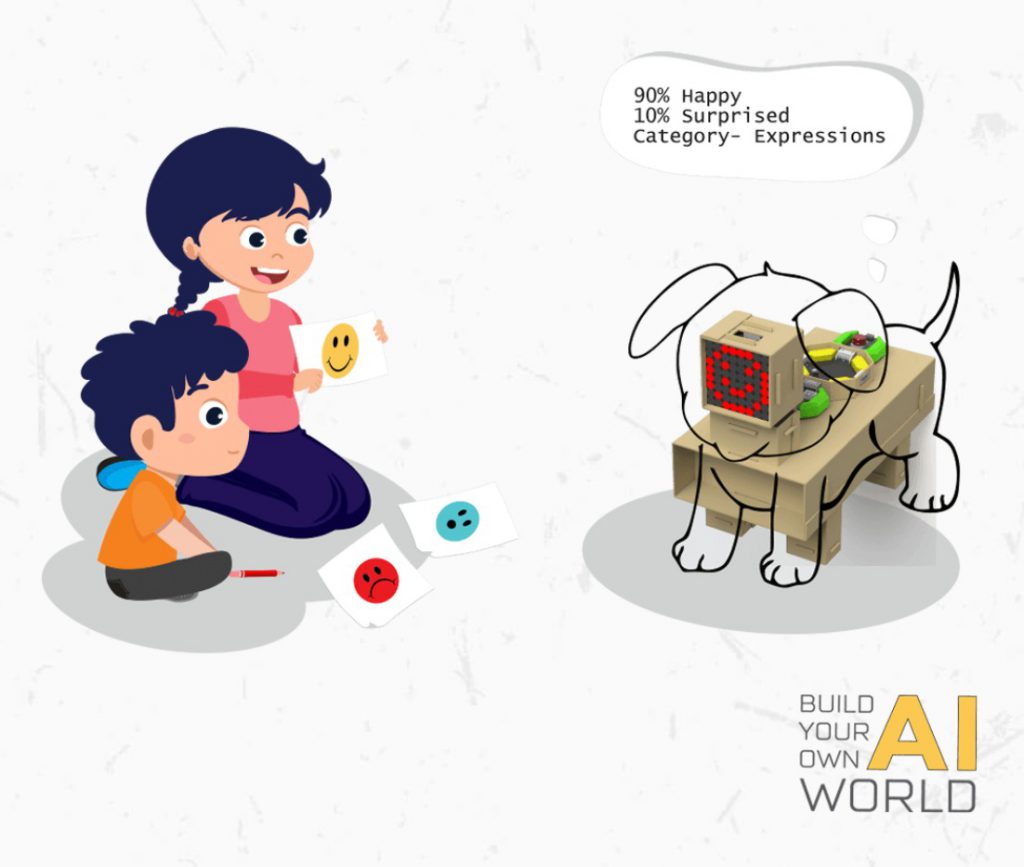
Let’s get familiar with AI & ML!
What Do You Mean By Artificial Intelligence?
In simple words, Artificial Intelligence(AI) makes it possible for “smart machines” to learn from their experiences and perform the tasks that usually humans are required to do.
What Do You Mean By Machine Learning?
It refers to the study of computer algorithms that automatically improve through data and experience. Machine Learning is a part of Artificial Intelligence that is based on the notion that these systems have the potential to learn from the data sets, ability to identify patterns, and decision-making capacity with less human intervention.
Let’s consider some examples where Machine learning is used in Real-life scenarios:
Mylab’s CoviSelf Do-it-Yourself Covid-19 Test Kit
The Pune-based Mylab Discovery Solution has launched India’s first Self-use rapid antigen test kit for Covid-19 named CoviSelf. This kit is easy to use and comes with a disposal bag.
This Self-Kit Is Useful For The Following People:
- Those People who have Covid-19 symptoms. (symptomatic individuals)
- Those People who have been in close contact with lab-confirmed Covid-19 patients.
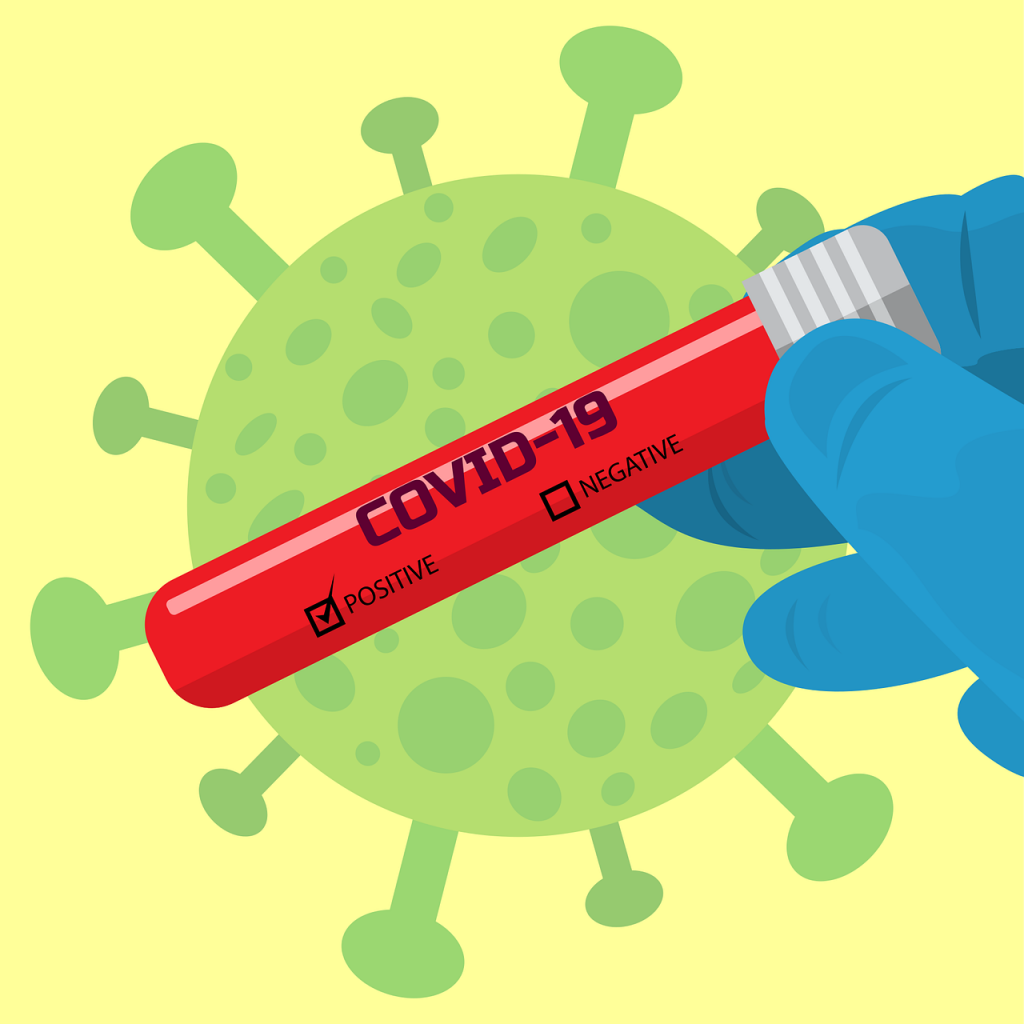
How Does It Use Image-Based Machine Learning Technology?
In order to use the CoviSelf test kit, first of all, the user needs to download an AI-powered mobile app called Mylab Coviself App. It is available on the Google Play store for android users and on Apple Store for iPhone users. You need to open the Mylab Coviself app. Then you need to enter your credentials or information. Now scan the unique QR code on the test device to link the QR code with the credentials or information that you have filled in. This app consists of complete guidelines on the usage of this test kit and how to read the test result.
After completing the testing procedure, the user needs to click on a picture of the test device. Remember to click the picture on the same mobile device on which the Mylab Coviself App is available. This app predicts the Covid-19 result on behalf of data generated by the test device of the CoviSelf kit. There are basically two levels on this test device- Control line(C) and Test line(T)
The system or app has been trained by a number of test sample images using supervised image-based machine learning or labeled datasets.
There are basically 3 cases that arise:
1. Positive
If the sample image which is uploaded by the user shows both the Quality control line(C) and Test Line(T) then the result is Positive. All test positive individuals are suggested to follow the home isolation guidelines as per the ICMR.
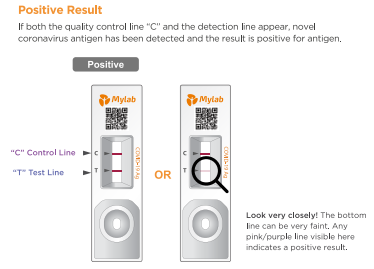
2. Negative
If the sample image which is uploaded by the user only shows a Quality control line(C), and NO test line (T) then the result is negative.
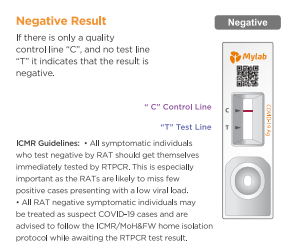
3. Invalid
If the sample image which is uploaded by the user does not show a quality control line(C) the result will be termed as Invalid regardless of the presence of Test Line(T).
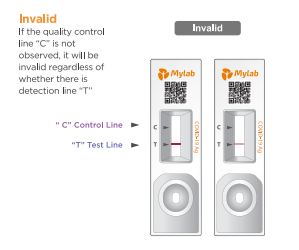
Then the data in the mobile app will be captured into a secure server. This secure server is connected with the ICMR COVID-19 testing portal, where all the data and information will be stored.
How Netflix Utilizes Machine Learning?
Netflix is the most well-known streaming service that offers a variety of entertainment-packed movies, TV Shows, documentaries, etc. that can keep the users hooked for hours. Netflix uses Machine Learning on its Homepage to recommend the best tv shows and movies for you to watch. It uses the following ways:
Recommendation Engine
Do you know Netflix uses a Machine Learning technology known as “Recommendation Engine” to recommend tv shows and movies? It is a special type of personalized web-based application that provides viewers with personalized recommendations about the type of content that they prefer to watch.
The things that the recommendation system considers to suggest a show to a viewer is given below:
- It focuses on genres that you have chosen while creating your Netflix account.
- It focuses on the genre of movies and tv shows that you have watched earlier.
- It focuses on the most common actors and directors whose movies that you have watched in the past.

Dynamic Personalized Thumbnails
Netflix understands that they can’t fully rely on the title of the movies and TV shows alone. Netflix uses machine learning technology to figure out which thumbnails have the highest possibility to attract viewers’ attention. Thus, they use dynamic personalized thumbnails. Every thumbnail that is selected is purely algorithm-based.
To choose the best possible thumbnails, Netflix uses a scientific selection process known as Aesthetic Visual Analysis. It is a set of tools and algorithms that searches Netflix videos for the best images, and it pulls them out to create thumbnails.
Based on the user’s past viewing history, the thumbnail will be selected in such a way that it has the highest rate of conversion. For every program in Netflix, there are various ranges of thumbnails that will cater to the needs of a particular group of users. The algorithm collects data and information from the viewers on the basis of which thumbnail they choose. It basically identifies the user’s interest in various genres like comedy, thriller, horror, etc.
These thumbnails may be based on a funny scene from the movie, a famous actress that the viewer recognizes, or a scene that captures the essence of the movie or shows like Good vs Evil, Man Vs machine, etc.
For example, Netflix will show the Romantic thumbnails of “Riverdale” shows to viewers who have a history of viewing romantic shows. Likewise, specific to each genre Netflix will present thumbnails based on users’ past genre viewing experience.
Netflix uses various ML algorithms to constantly test their various thumbnails as per users’ interests. It chooses the thumbnails that will receive the most clicks and generate the most interest among the viewers on the basis of their watch history. ML enables Netflix to provide personalized thumbnails for its various TV shows and movies.
Video Streaming Quality
In layman’s terms buffering refers to a state when your system will put your task on hold until enough data is downloaded that will allow the video stream to play the video without any kind of lag. You often have encountered buffering while using a video streaming service. Buffering can ruin a user experience and they tend to leave the platform when it happens.

To eradicate this issue, Netflix uses machine learning algorithms that can predict their users’ viewing patterns to figure out when most viewers will use their service. They use this information to cache the regional servers that are closest to the viewers location so that the user can watch movies and tv shows without any kind of buffering(or very low buffering).
What is the best way to learn the basics of AI & ML Technology?
You must be eager to learn about the innovative technologies of AI and ML. Guess what? You are at the right place! Tinkerly has got you covered!
Tinkerly offers hands-on coding classes blended with the goodness of STEM toys. With the help of this course, your kids will not only learn about AI & ML but also learn the concepts of Game development, IoT and Robotics as well.
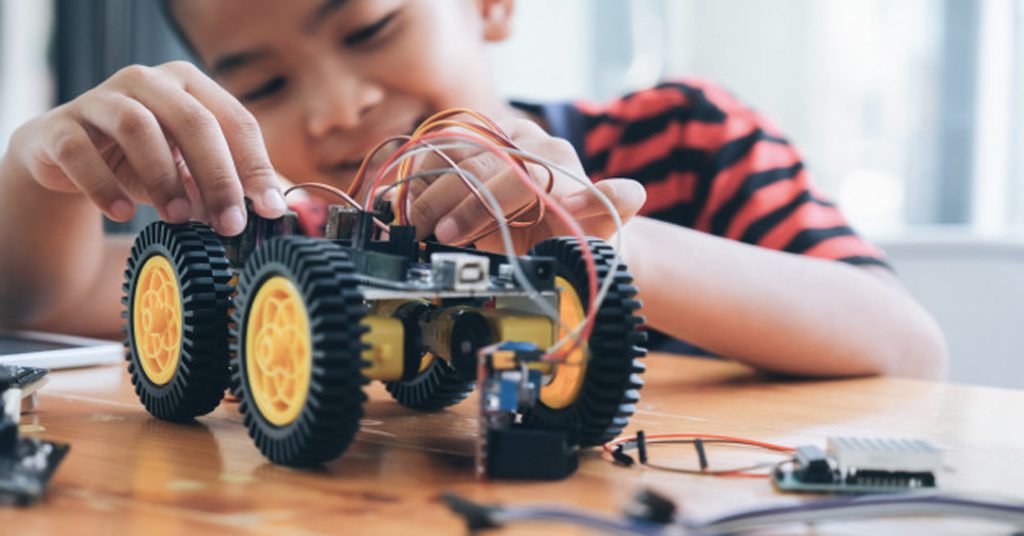
The kids will gain practical knowledge and they will enjoy the thrill of experiential learning under the guidance of an expert educator.
This course has the potential to take your child’s learning beyond the screens with the help of interactive STEM learning kits. These STEM kits are easy-to-use, and it helps to reduce the overall unproductive screen time of the students by almost 50 percent.
Conclusion
Artificial Intelligence technology has a lot of potentials to grow at a rapid rate. Thus, there will be a growing demand for people who will understand AI technology. If your child will start learning about AI & ML from an early age, then he/she will be able to understand and control this technology in the coming future.
Stay tuned with us & subscribe to our blog. Be the first one to receive a notification whenever we publish our brand new blog!
 2897
2897




